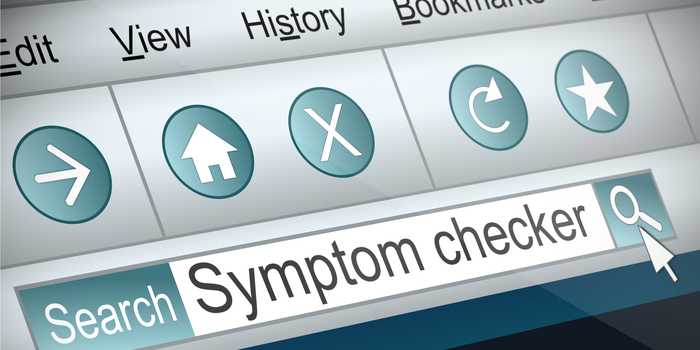
FREE SYMPTOM CHECKING PROGRAMS ON INTERNET
More than a third of adults nationwide in USA regularly use the internet to help diagnose their ailments. They often start with online search engines, which can return confusing and unreliable information.
Recently, sophisticated programs called symptom checkers have emerged. They ask users a series of questions about their symptoms and analyze the responses using computerized algorithms. These programs offer a possible diagnosis and may also provide triage advice- whether users should seek care and if so, what kind of facility and how quickly.
For people with a life-threatening problem, such as stroke or hart attack, symptom checkers may save lives by guiding them to seek emergency care. For those with a problem that doesn’t require a medical visit, the programs may provide reassurance and save both trouble and costs.
The impact of symptom checkers on health care depends on their accuracy. A team led by Dr. Ateev Mehrotra of Harvard Medical School and Beth Israel Deaconess Medical Center evaluated the performance of symptom checkers. Between June 2014 and November 2014, they searched for free symptom checkers online, in the Apple app store and on Google Play. Many symptom checkers had the same medical content and logic as others and the researchers included 23 programs in the final set for evaluation.
The researchers used 45 standardized patient vignettes in 3 categories: 15 for which emergency care is needed, 15 for which non-emergency care reasonable and 15 for which self care is sufficient. The study was funded by the NIH’s National Institute of Allergy and Infectious Diseases (NIAID) and published on July 8, 2015 in the BMJ.
The researchers found that the symptom checkers listed the correct diagnosis as the first option in 34% cases. The checkers provided the appropriate triage advice in 80% emergency, 55% of non-emergency and 33% of self-care cases. Overall, the symptom checkers were risk averse, encouraging users to seek care for conditions in which self care would be reasonable.
The researchers note it’s often more important to know whether to seek emergency care than to know the exact diagnosis suggesting that symptom checkers can be helpful. “But in many cases users should be cautious and not take the information they receive from online symptom checkers as gospel truth,” says Mehrotra.
“This is the first generation of symptom checkers and it is important to continue to track their performance to see if they can reach their full potential in helping patients get the right care” says first author Dr. Hannah Semigran.
Article Source
1. Semigran HL et al. Evaluation of symptom checkers for self diagnosis and triage: audit study. BMJ 2015; 351: h3480 and National Institutes of Health, USA.